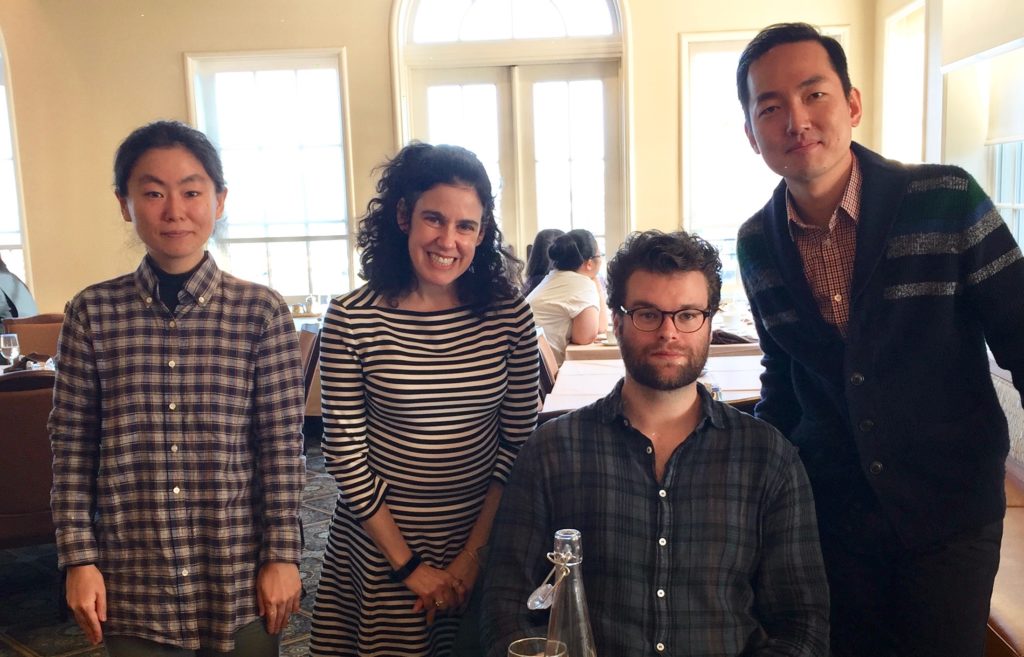The Center for Korean Research in the Weatherhead East Asian Institute, Columbia University is pleased to announce the publication of the Journal of Korean Studies Fall 2017 issue, Volume 22, No.2.
Guest edited by Steven Chung (Princeton University) and Hyun Seon Park (Yonsei University), the fall 2017 thematic issue, “The Cold War in Korean Cinemas,” offers seven articles that complement each other in the ways they each redefine not only Korean cinema but the Cold War itself. This issue provides both a deep engagement with the archive and a set of major theoretical interventions.
The articles will be available online shortly through read.dukeupress.edu and Project MUSE, including for individuals not affiliated with a subscribing institution. The abstracts for the current issue are available at jks.weai.columbia.edu.
The Journal of Korean Studies (JKS) publishes articles in all disciplines and across all time periods, both historical and contemporary. The JKS is committed to articles that engage with a Korea-related topic in a substantial way, take existing scholarship (in Korean and/or other languages) into account, and explore new methodologies and theoretical frameworks that speak to readerships beyond Korean studies. We encourage transnational, interdisciplinary approaches to scholarship.
JKS is currently accepting submissions for the special fall 2019 issue (Volume 24, No. 2) entitled “Archives, Archival Practice, and the Writing of History in Premodern Korea.” This issue is guest edited by Jungwon Kim (Columbia University). JKS also welcomes submissions year round for publication in the spring issue. For more information please visit jks.weai.columbia.edu and https://www.dukeupress.edu/journal-of-korean-studies/
![]()
The Journal of Korean Studies, Fall 2017, Volume 22, No.2
- Editor’s Note
- Introduction
- Articles
- Cold War Cosmopolitanism: The Asia Foundation and 1950s Korean Cinema
Christina Klein - Auteurism as a Cold War Governmentality: Alternative Knowledge and the Formation of Liberal Subjectivity
Han Sang Kim - Destination Hong Kong: The Geopolitics of South Korean Espionage Films in the 1960s
Sang Joon Lee - Doubled Over 007: “Aryu Pondŭ” and Genre-Mixing Comedy in Korea
Evelyn Shih - Cold War Mnemonics: History, Melancholy, and Landscape in South Korean Films of the 1960s
Hyun Seon Park - Departure and Repatriation as Cold War Dissensus: Domestic Ethnography in Korean Documentary
Jinhee Park
Book Reviews
- The Korean State and Social Policy: How South Korea Lifted Itself from Poverty and Dictatorship to Affluence and Democracy by Stein Ringen, Huck-ju Kwon, Ilcheong Yi, Taekyoon Kim, and Jooha Lee and State-centric to Contested Social Governance in South Korea: Shifting Power by Hyuk-Rae Kim
Reviewed by Jesook Song - The Capitalist Unconscious: From Korean Unification to Transnational Korea by Hyun Ok Park
Reviewed by Cheehyung Harrison Kim - Korea’s Grievous War by Su-kyong Hwang
Reviewed by Nan Kim - Tourist Distractions: Traveling and Feeling in Transnational Hallyu Cinema by Youngmin Choe
Reviewed by Haerin Shin
Jooyeon Kim
Managing EditorWeatherhead East Asian Institute
Columbia University
- Cold War Cosmopolitanism: The Asia Foundation and 1950s Korean Cinema



